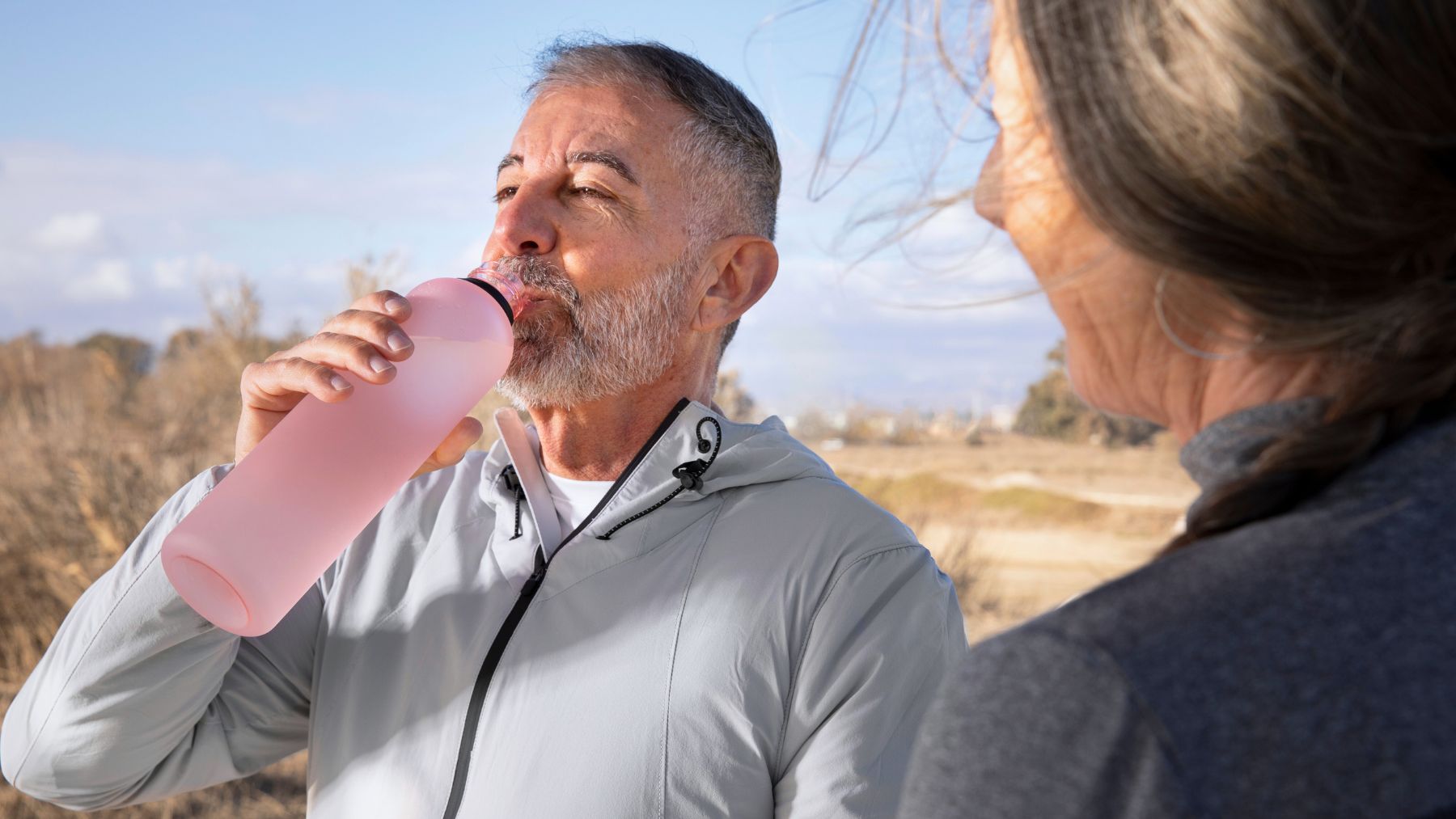Spending time in the water is one of the best ways to stay active and cool during summer. Swimming helps with joint mobility, balance, circulation, and muscle strength without putting stress on your body. For seniors, especially those over 65, water safety involves more than just knowing how to swim or wearing a flotation device.
One of the most overlooked risks while swimming isn’t about technique or equipment—it’s dehydration. Older adults are more prone to it, which can affect balance, strength, and alertness in the pool. Here, we’ll focus on the importance of staying hydrated and share smart, simple ways to do it before and after you get in the water.
Stay hydrated this summer
It’s easy to assume you’re fine if you’re surrounded by water, but swimming and sun exposure can accelerate the dehydration process. This is especially risky for seniors. As we age, the body’s ability to sense thirst declines, and medications or chronic conditions can also affect fluid levels.
Even mild dehydration can lead to dizziness, confusion, and muscle cramps, all of which can increase the risk of accidents while swimming. If you feel lightheaded in the water, your reaction time slows. You may misjudge distance, lose your footing, or get too tired to swim back to the edge. That’s where the real danger lies—not just in deep water, but in the moment your body stops keeping up.
Hydration also helps regulate your body temperature. Summer heat and warm water can quickly lead to overheating, especially in hot tubs or heated pools. If you’re not replacing fluids, your blood pressure may drop, and your risk of fainting or falling increases. These small changes can add up quickly and become serious if you’re alone or far from help.
Smart ways for seniors to stay hydrated while swimming
The good news is that staying hydrated doesn’t take much effort. A few small habits can keep your fluid levels stable, your mind sharp, and your body safer in the water. Here are some simple tips:
- Drink water regularly: Don’t wait until you feel thirsty. Sip water throughout the day, especially in the hour before and after swimming.
- Bring a bottle to the pool: Keep a reusable water bottle nearby and take small sips between laps or breaks.
- Skip sugary or alcoholic drinks: These can make dehydration worse. Stick to plain water, coconut water, or drinks with electrolytes if you’re swimming for a long time.
- Eat water-rich foods: Fruits like watermelon, oranges, and strawberries help keep you hydrated. Cucumbers, tomatoes, and lettuce are also good choices.
- Watch for signs of dehydration: Dry mouth, headache, dark urine, and feeling lightheaded are all early signs. Take a break and rehydrate if you notice them.
- Set reminders: If you tend to forget, set a phone alarm or use a sticky note near your swim gear to remind yourself to drink before heading out.
Hydration is one of the most important steps you can take to swim safely as you age. It supports your energy, balance, and reaction time. Floatation gear has its place, but nothing replaces the basic need to keep your body fueled and ready. Drink water, pay attention to how you feel, and enjoy swimming with confidence this summer.
